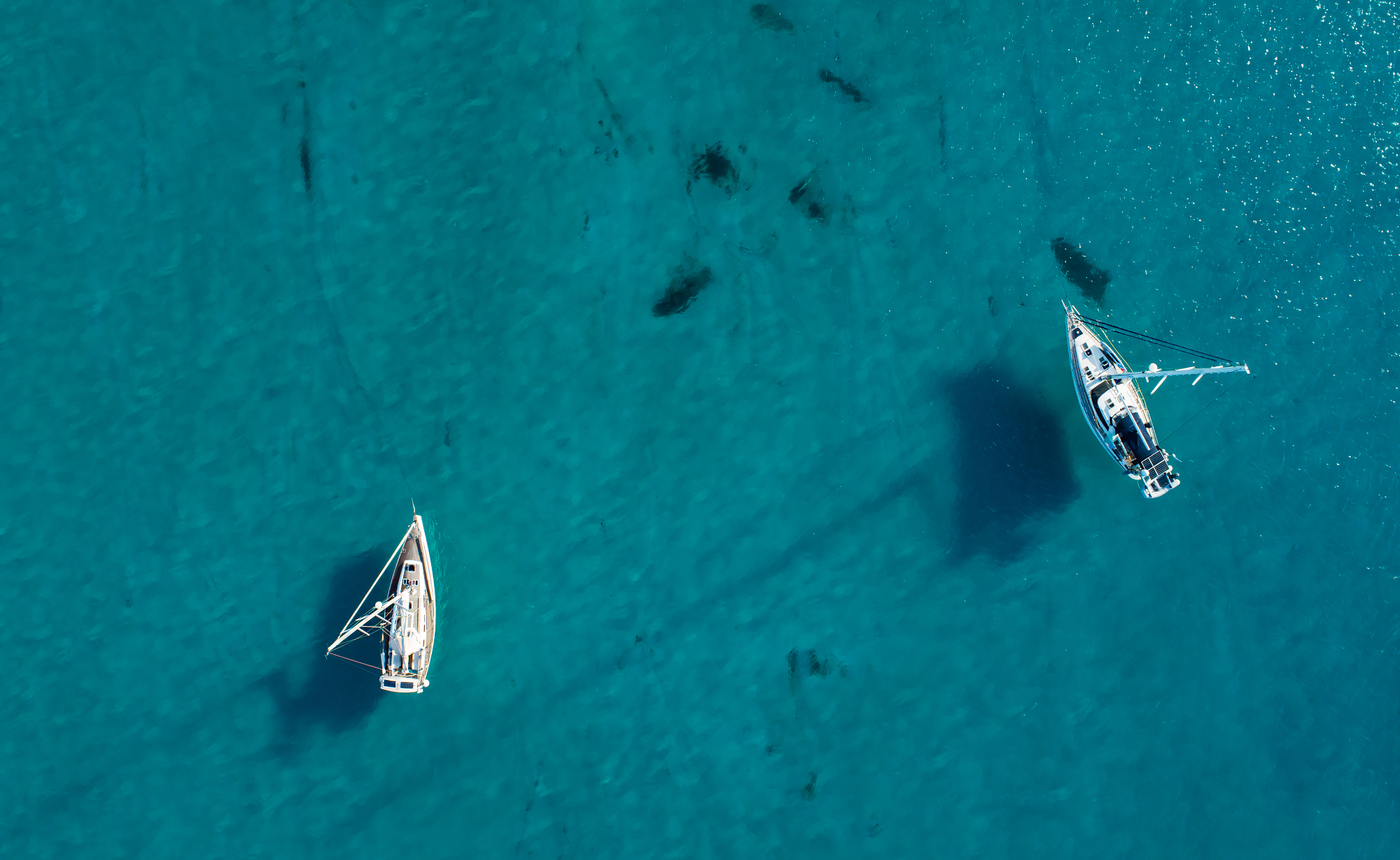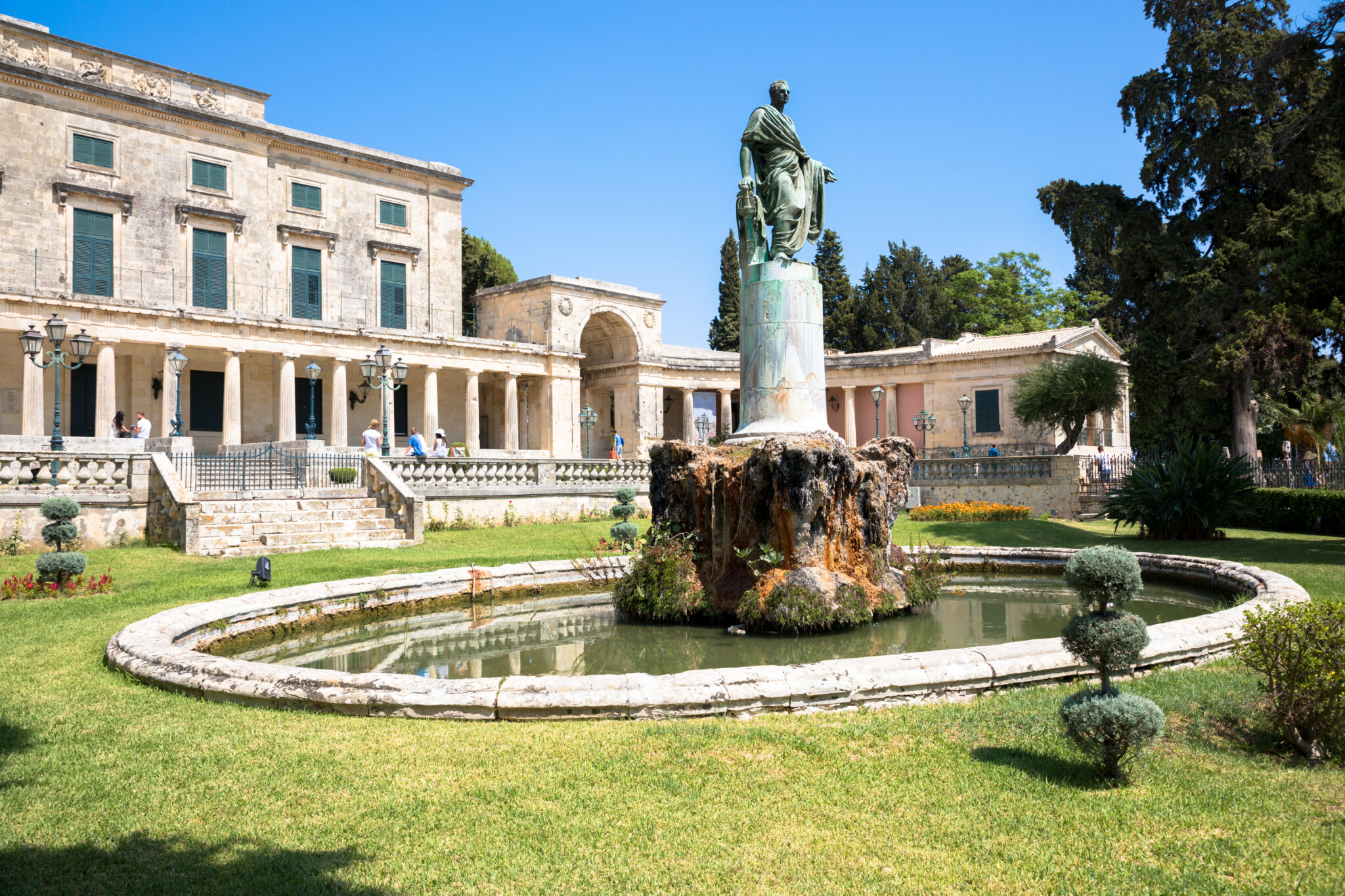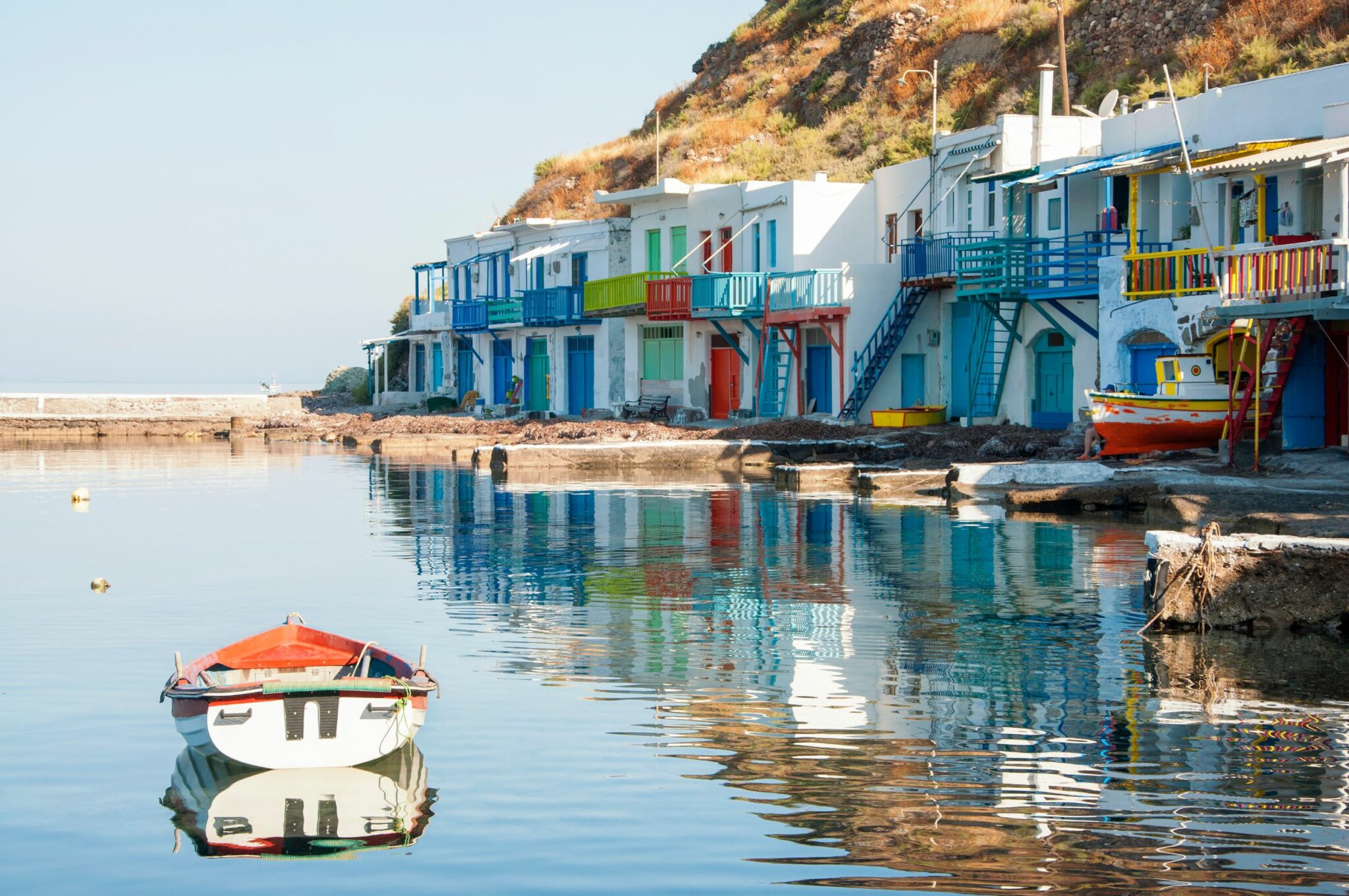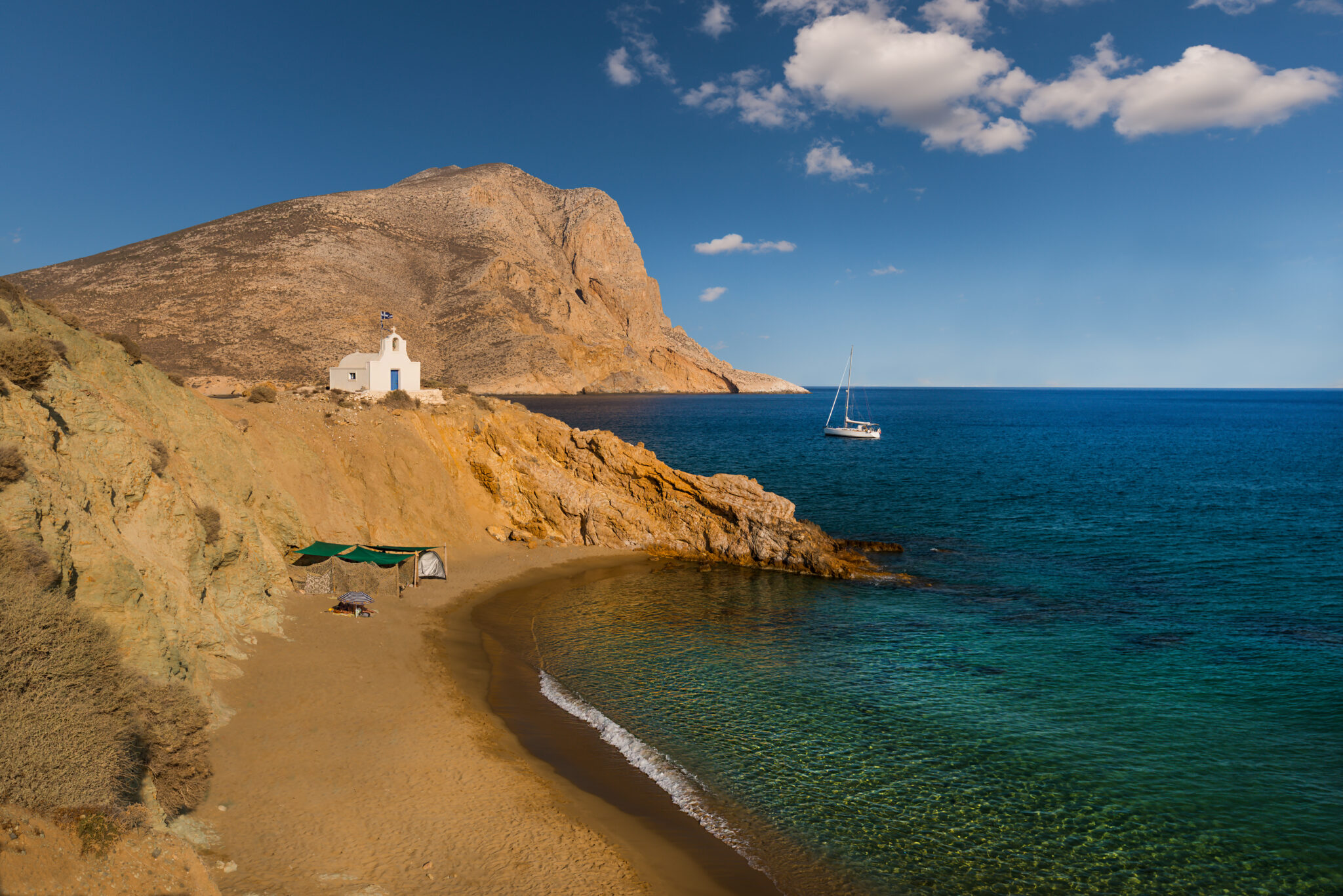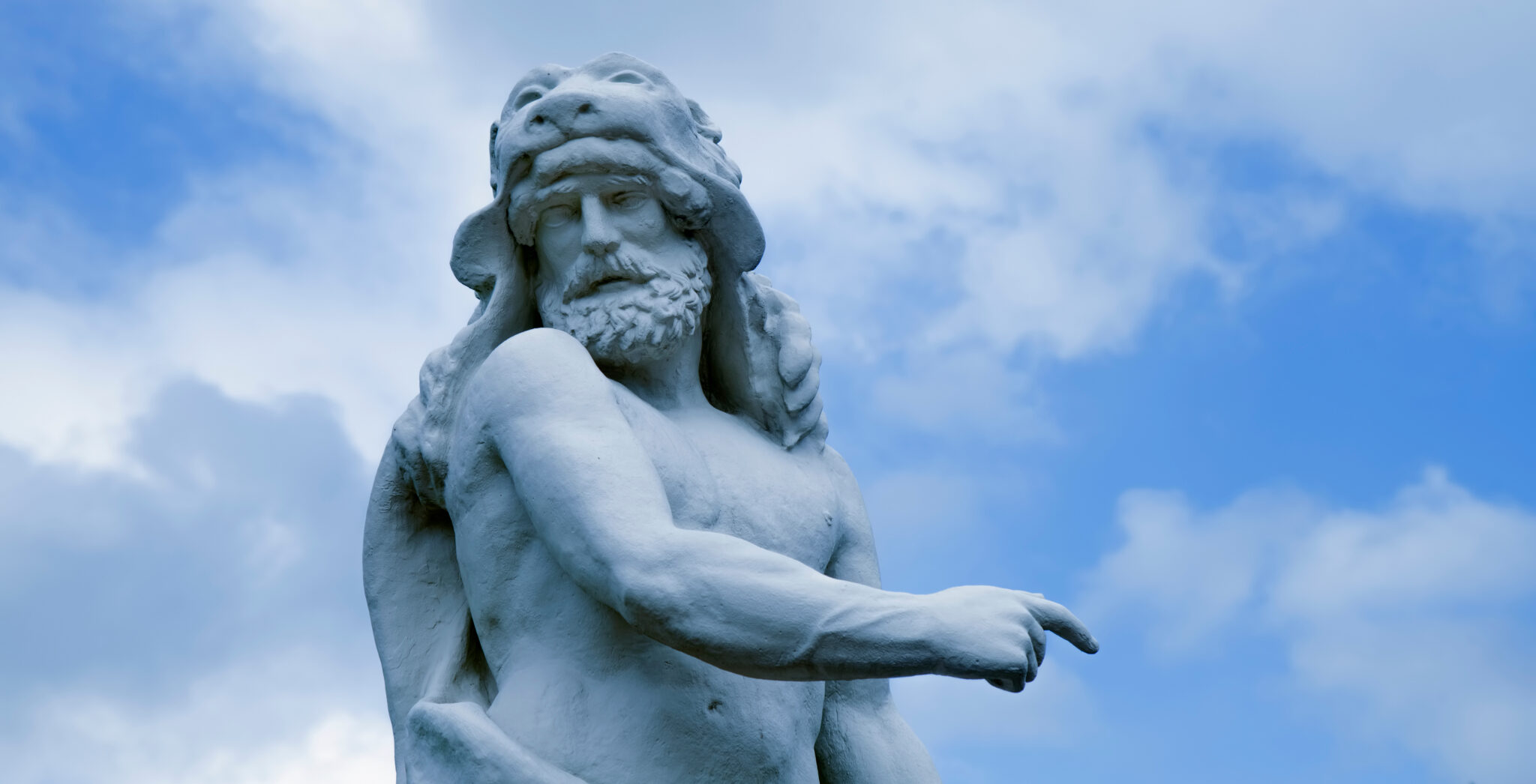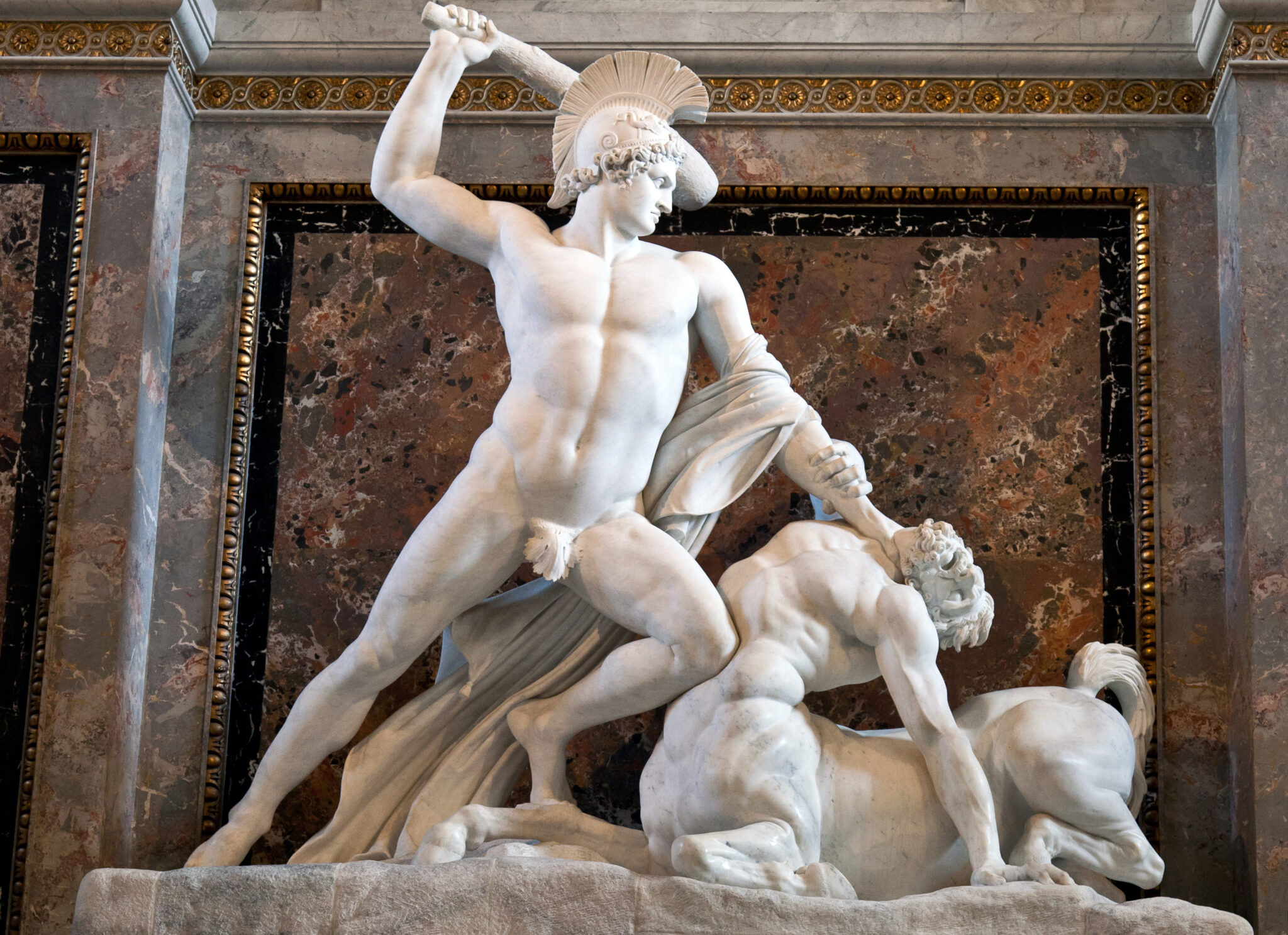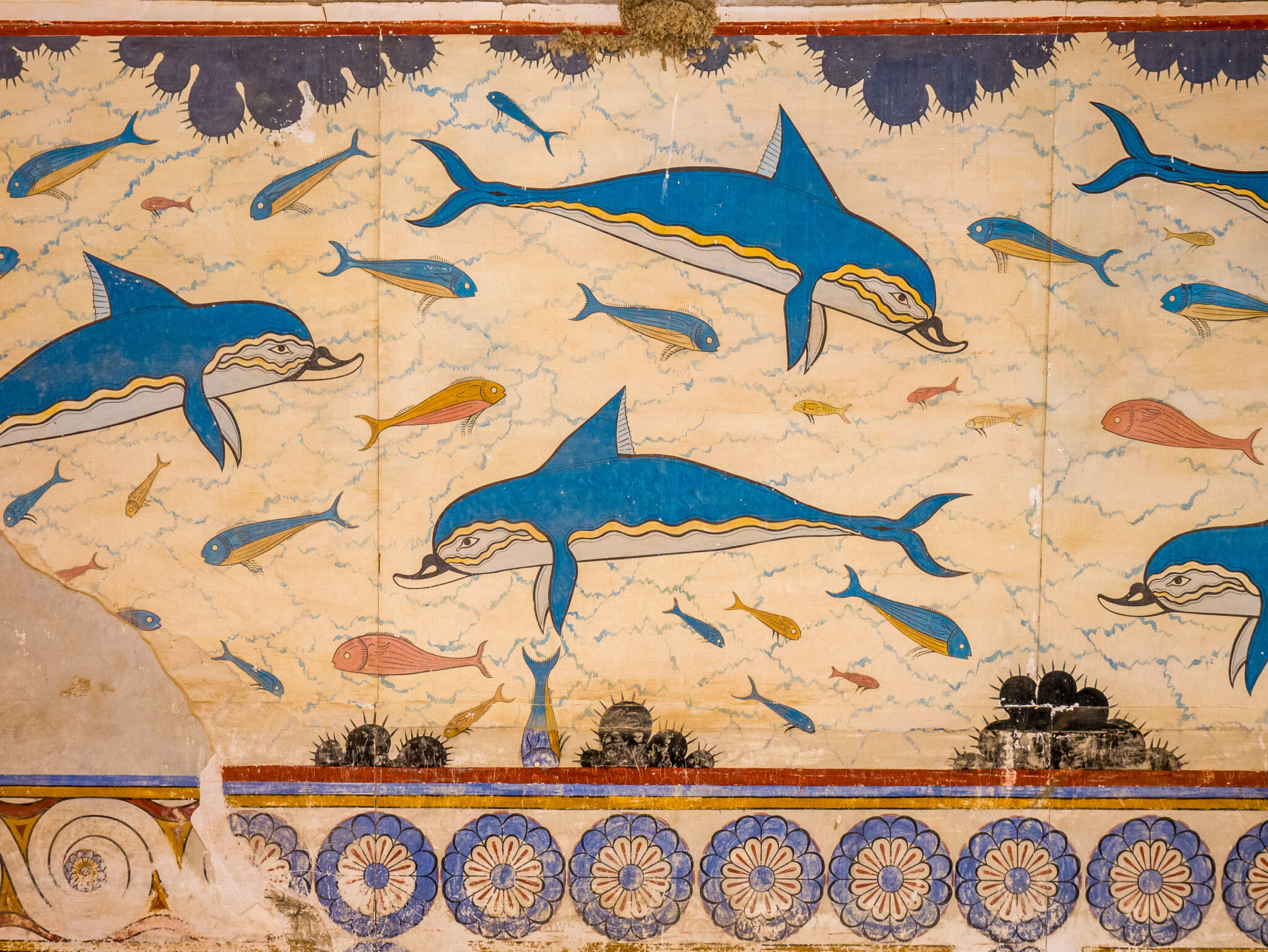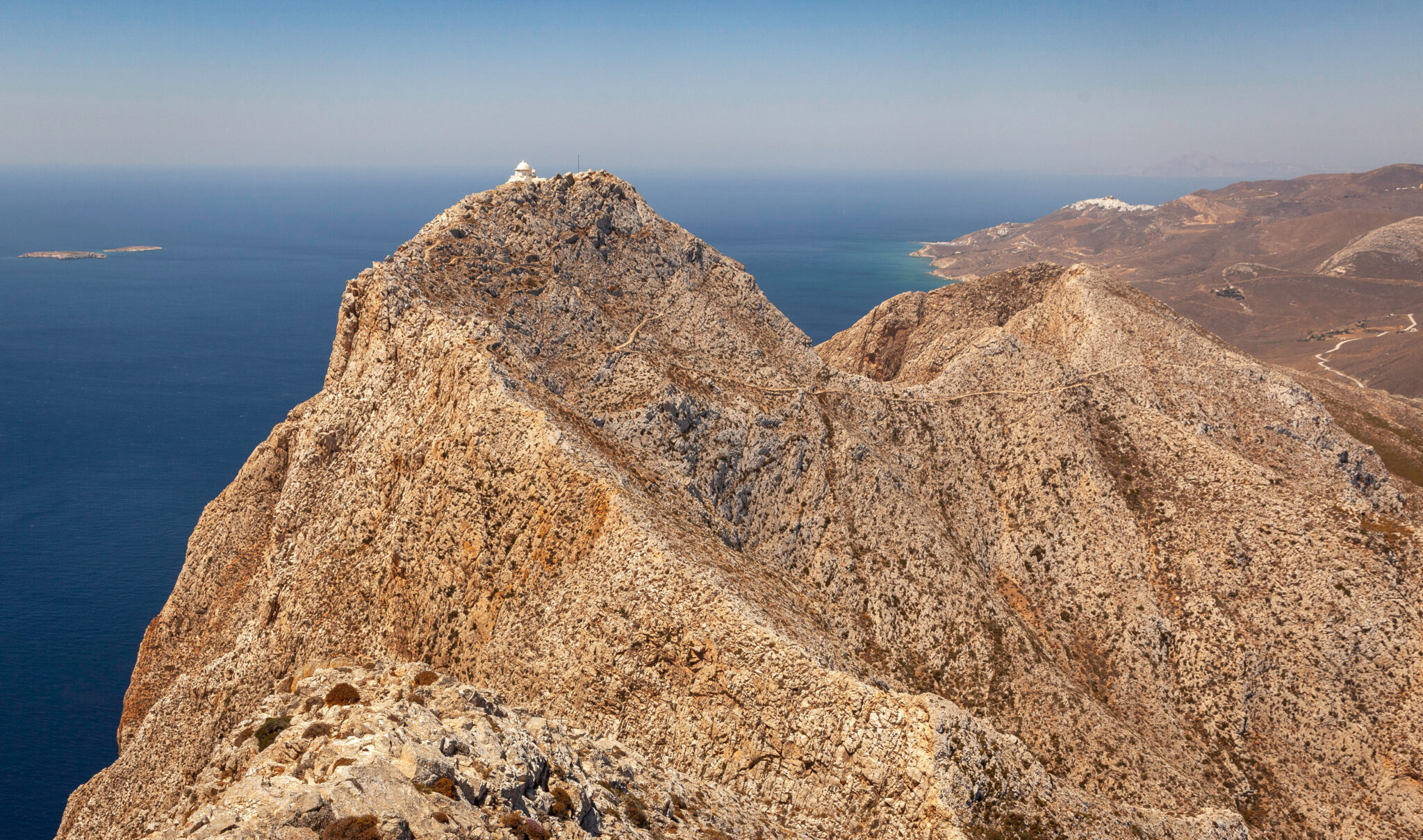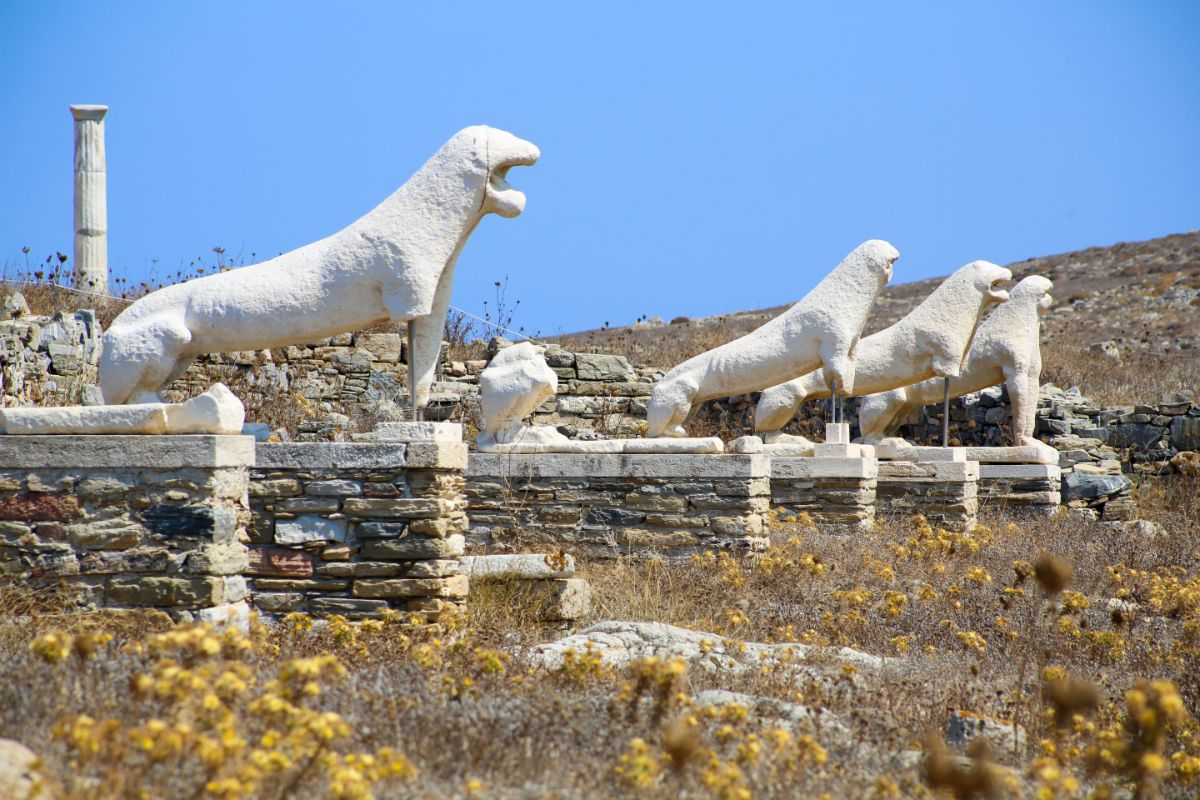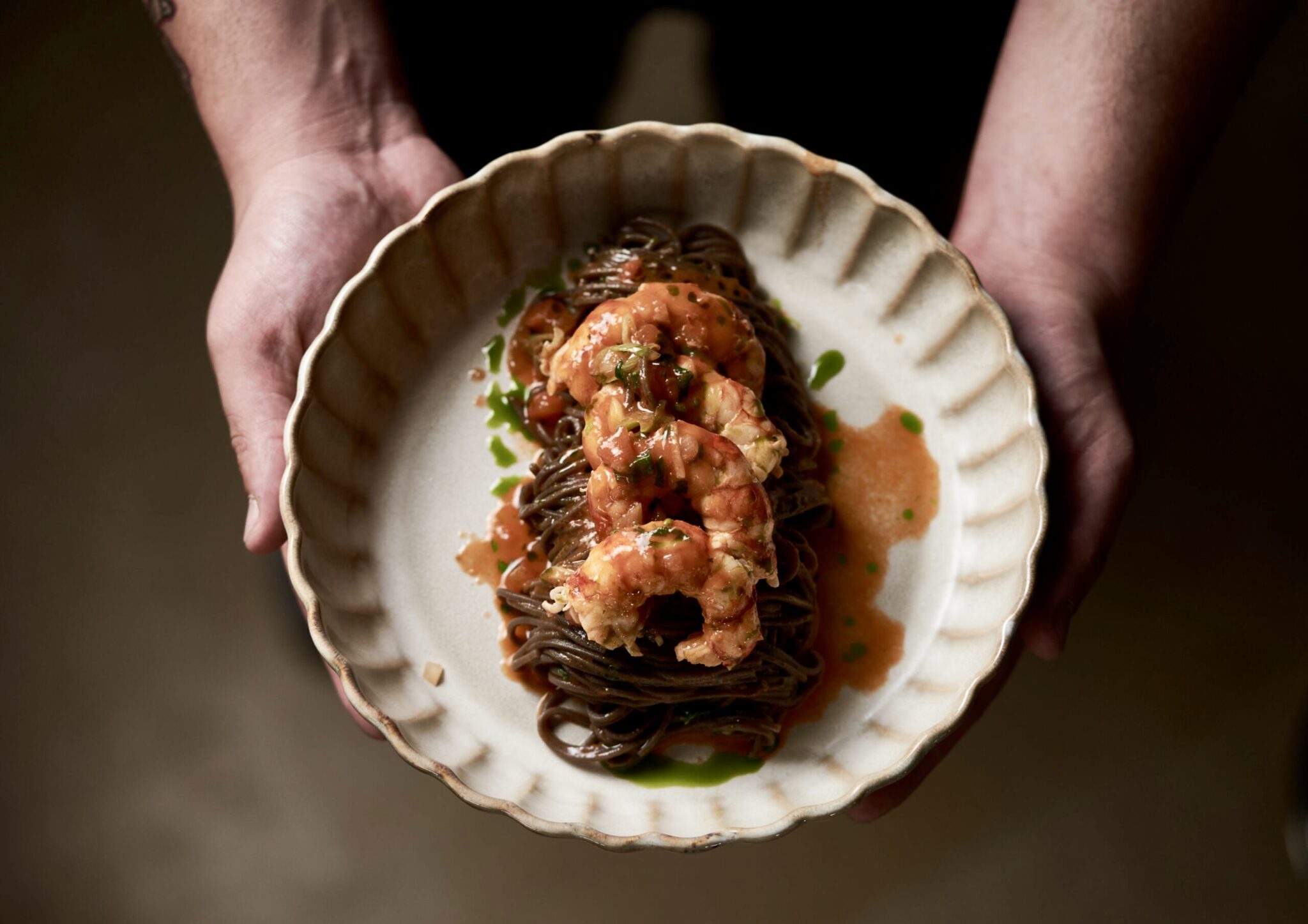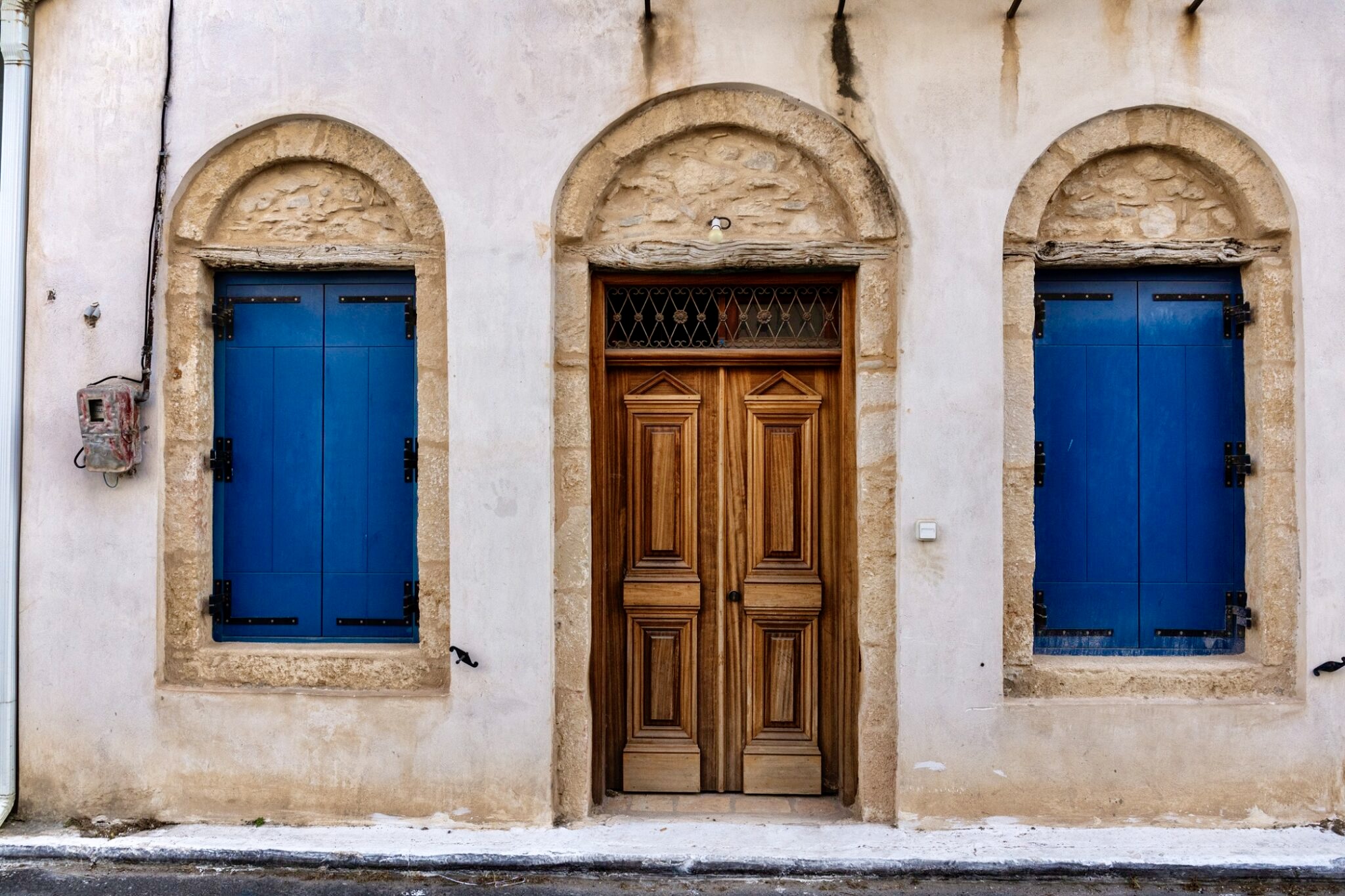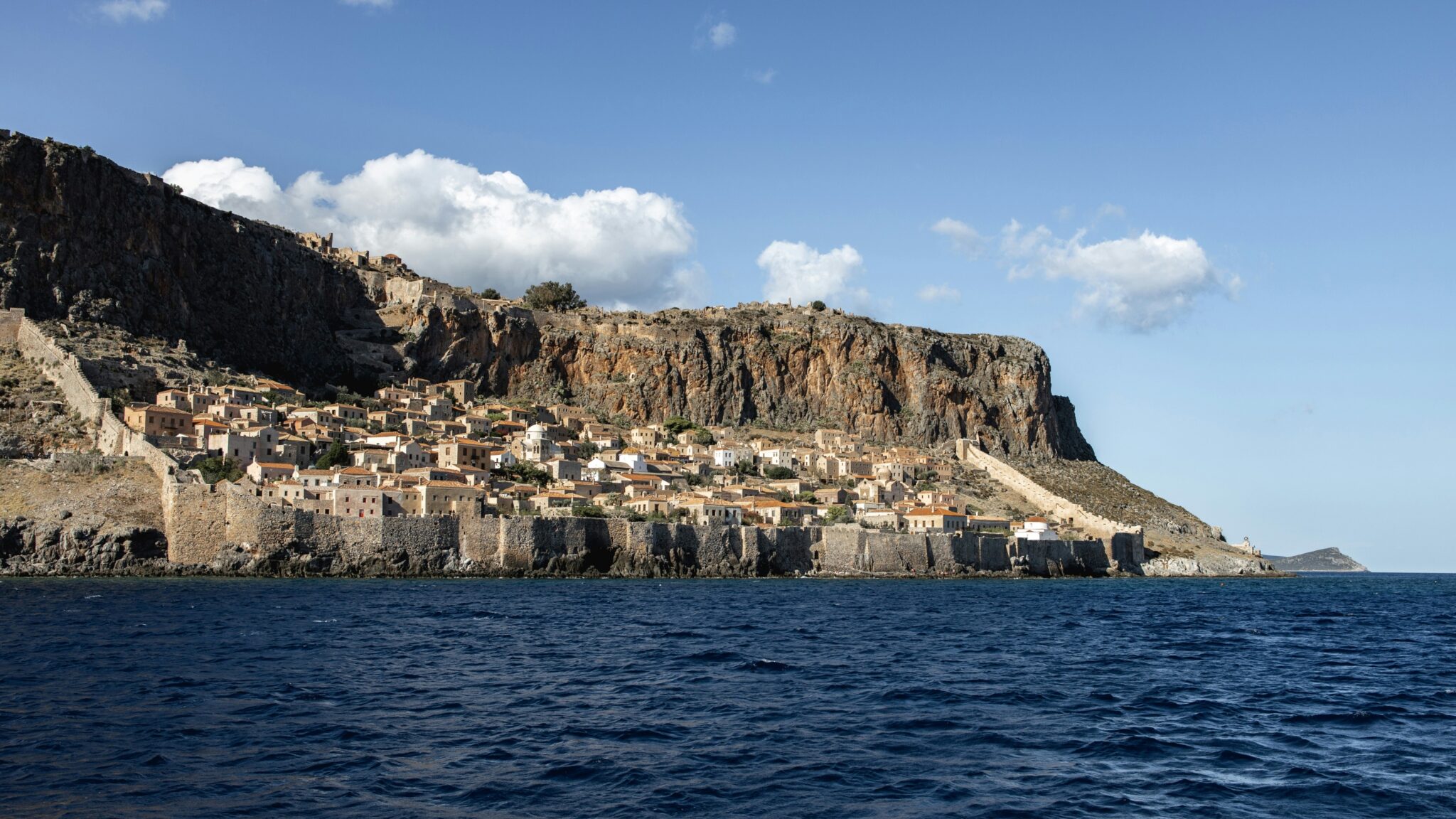Before written history our ancestors made sense of the world around them with tales and legends. Gods clashed and connived, the elements scorched and blew, the earth rumbled and erupted, animals hunted and aided. Intrepid explorers and pioneers were at the mercy of the seas, which sometime lay calm and motionless and others were whipped up into frenzied deadly storms.
Here are a few tales preserved in time and passed down through the ages, that animate our our travels, enrich our experiences and add some colourful context to places we love.
Tinos: Blow wind blow
Ever wondered why there’s a strong Meltemi wind, blowing stiffly through the Cyclades during the high-summer months. Well there’s a perfectly good explanation. It’s all because of Hercules! He slayed Calais and Zetes, the sons of Boreas (the north wind), in an act of vengeance. On the expedition to the black sea, they had convinced the Argonauts to abandon Hercules at Mysia (he was searching for his lost lover, prince Hylas). Years later he caught up with them and shot the winged twins with his bow and arrow from the top of Mount Tsiknias on the cycladic Island of Tinos. From that day the distraught Boreas as retribution still whips-up the summer Meltemi winds.
Naxos: A love lost and a lover gained
Ah poor Ariadne, daughter of the Minoan King, Minos. Love at first sight: Setting eyes on the Athenian, Theseus she was struck by Cupid‘s arrows, so she set about helping our hero escape her father’s Cretan kingdom, after he had slain the mighty minotaur. Naturally she didn’t want to stay behind so she eloped with her new boyfriend on his ship as he fled back to Athens. However, it was just a case of summer love; the sweethearts took a break from their voyage, stopping at Naxos. Here they took a romantic ramble through the island’s fertile plains, where upon our hero turns cad; he waits for Ariadne to fall asleep, he then runs off and set sail for home. All is not lost for our valiant heroine however, as the heartbroken princess was found by the hedonistic god Dionysus, who promptly marries her and they had 4 lovely children, Oenopian, Staphylus, Ceramus, Peparethus.
Syros: The dolphin king
The Miletian King Coiranus, came upon some fishermen one day who had caught dolphins, luckily before they had managed to slaughter them, the king bought the lot, setting them free back into the deep blue se…Aegean waters. One good turn deserves another, and so when Coiranus, on one of his maritime adventures, was shipwrecked in the Cyclades, a dolphin came and saved him, taking the drowning king to a cave on Syros, now named ‘Coiranian Andro‘. Coiranus summarily decided to become king of the island and legend has that this benevolent and virtuous ruler was much loved by his vassals.
Santorini: Back to our intrepid Argonauts
According to this myth, Santorini didn’t exist through tectonic activity that created lava layers over millenia that finally poked out of the sea to form a volcano, but from when Ephemus, son of the god of the sea Poseidon and Europa, threw a tuft of earth into the waters. How did all this come about? Ephemus was relaxing with his fellow Argonauts on the Cycladic island of Anafi, where he dreamt that he had ‘lain with’ a nymph. In a case of immaculate conception the poor nymph turned out to be pregnant after the dream and afraid of her father, the great Triton – a merman, demigod of the sea – she asked her hypnotic lover to throw a piece of earth from Anafi into the sea to the north, to hide her expanding belly and so she could give birth in peace, without her daddy’s knowledge. This he did and hey presto – in a haze of tremors and smoke Santorini appeared.
Delos: Let there be light …. and hunting
The king of the Olympian gods, Zeus, had been up to his old adulterous tricks again, this time with Leto, the daughter of the Titans Coeus and Phoebe. Of course she became pregnant, and of course the queen of the gods Hera, Zeus’ wife was miffed. So she forbade anyone to give the poor destitute Leto shelter and wouldn’t allow her daughter, Eileithyia, the goddess of childbirth, to tend to the wondering woman. Near Mykonos she stumbled upon the islet ‘Asteria‘ floating in the Cyclades like a boat, and here she rested. The islet miraculously transformed into an island and was named Delos (the hide-away). Leto gave birth to the twins here, Apollo and Artemis, thus the island became scared, and from then on, no one was allowed to die and no woman give birth on Delos.
Read also:
Delos: An island-landmark, one of the most important archaeological sites in Greece
Trekking at an ‘open-air museum’ of geology and ancient technology in Greece
The true side of Santorini, one of the most famous islands of the Cyclades




